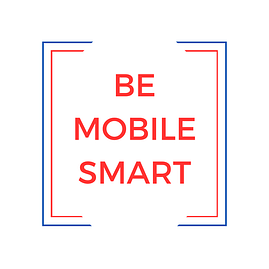
Dear Ms Smartphone: Should I start using my phone as a Covid detective, specifically to do Covid tracking by phone? I am not in a high risk group but I attended a busy outdoor rally the other day where people got close and did not wear face masks. Now I am sorry that I went and I worry that I might have exposed myself. Would using my phone might have helped? Rafael, Stinson Beach
Dear Rafael, It’s a timely question and I hope you stay safe. There are maps online that show hotspots, but they seem to be out of date and not granular enough to reveal specific, local exposure. Since the ability to track Covid is baked into our smartphones we all need to learn more about it.
Historially, Covid detectors are groups of investigators, think of them like census workers, who physically track down people who are exposed to the virus. According to a local newspaper, the trackers compile a list of infected individuals, and then the people who came within six feet of them for at least ten minutes. Google and Apple can do this tracking for us too…but we don’t yet know if it is accurate. Here’s how….
IT’s ON THE MAP!
Most of us run tracing or tracking apps throughout the day. Think of the GPS (global positioning system) that enables turn by turn navigation or pickups for the rideshare driver. Bluetooth, a short-range wireless radio, lets you share pictures and files or wirelessly pair music and calls to another device. The standard range is 30 feet.
Both GPS and Bluetooth are now employed to detect Covid outbreaks, but Bluetooth is the favored method. An algorithm can ‘explore’ if your phone was in proximity to other phones (i.e. people) that concurrently, or later, developed Covid-symptoms. Without causing a public panic, the intention is that public health officials can contact you and tailor notifications.
If your phone had been Bluetooth enabled at the event you mentioned, you might have gotten a text or email a few days later. Your risk level would depend upon both the proximity and the duration of your exposure- as well as your overall health. UCSF has announced an GPS based tracing program that has people who test positive for the Corona virus download their location histories so that they can recreate the movement data.
Is it Private and Dependable?
Bluetooth was not developed for contact tracing- and the technology gets easily confused (i.e., unreliable) by the most basic interference from windows, walls, and big open spaces. Thus, it can generate false reports for Covid, and miss the big events. The technology was pulled off the shelf because there were no other digital tracking systems. But now, government agencies, from France to Singapore, have developed national tracking. However, local citizens have shunned them and there is conflict from both Google and Apple over the transfer of data from phones to centralized servers.
My Bluetooth Moment
On my own phone, I keep Bluetooth disabled, because it drains the battery, and I don’t want to take calls when I drive. I had a classroom ephipany that made me more mindful. I was leading a class, ‘Smartphone 101’, in the local public library, when students complained that an older gentleman was sending personal pictures from his iphone . Both the senders and receivers had a default setting that enabled photos on Bluethooth to be “discoverable.” They didn’t know to turn it off.
So, with a nod to mindfulness, we all need to become more informed about the features on our phone- they are tools that can deliver good or evil. Both Google and Apple make it extremely clear that they will not use Bluetooth data to tracking Covid data unless users opt-in. However, newer iPhones no longer require an extra step to download a separate app. You can find more information in the links (Google) (Apple) and choose whether to opt in or out.

Leave a Reply
You must be logged in to post a comment.